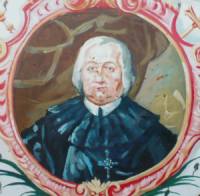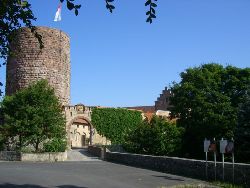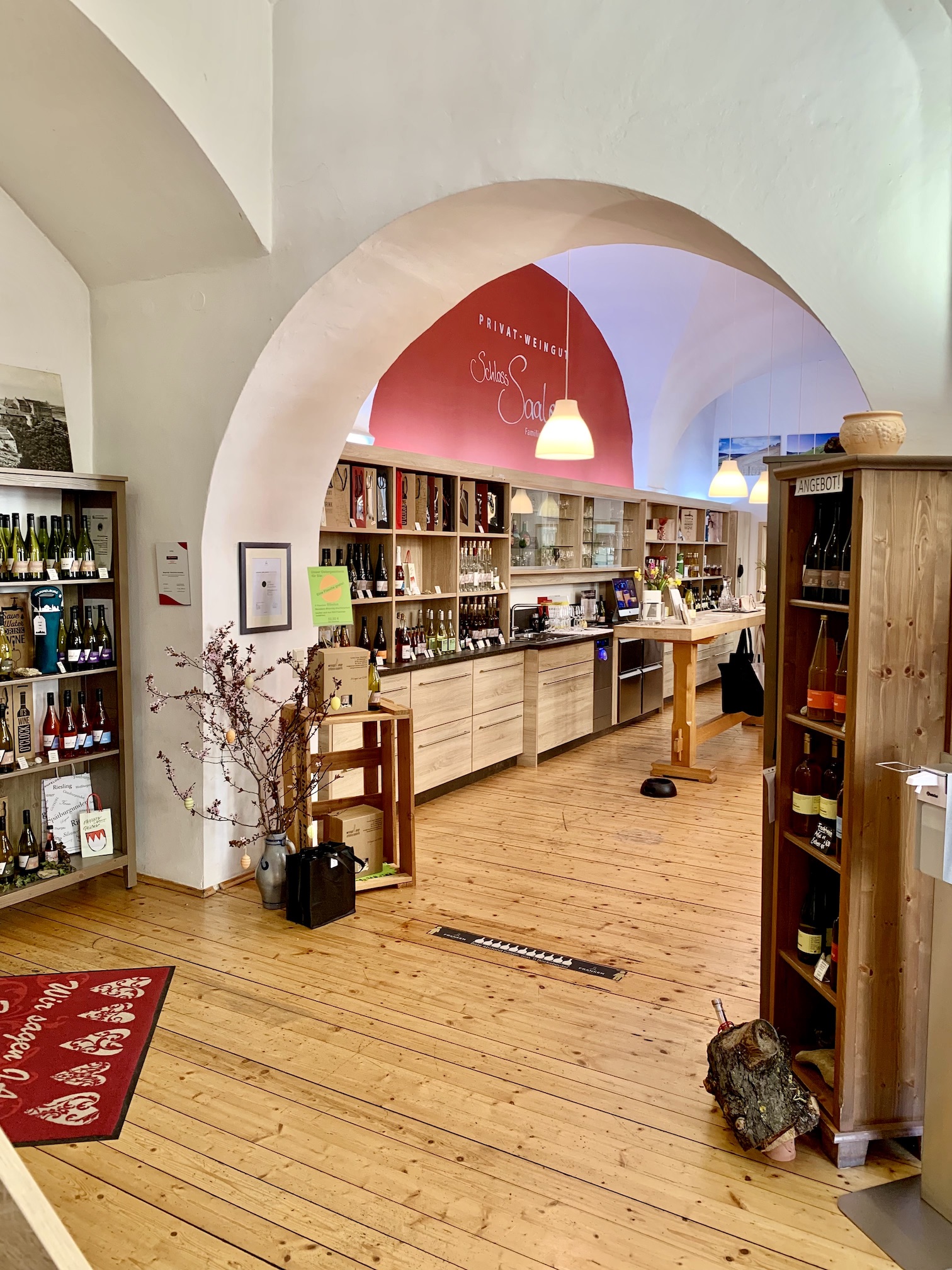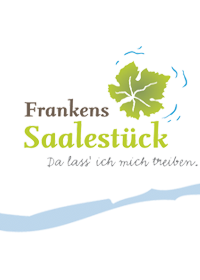Hammelburg is the "oldest wine town of Franconia". In an old document from the year 777, there is a note of a winery being gifted from Charles the Great (Charlemagne) to the monastery of Fulda.  At this point, the Abbotts from the church had already owned a vineyard (as mentioned in documents from 1298), presently known as Saalecker Schlossberg. Wine was scarce at this point and the monasteries needed larger quantities. Thus, the vineyards were expanded from Fulda. Its heyday was in the 17th century. In 1653, 190 ha were farmed – and today there are roughly 75 ha.
At this point, the Abbotts from the church had already owned a vineyard (as mentioned in documents from 1298), presently known as Saalecker Schlossberg. Wine was scarce at this point and the monasteries needed larger quantities. Thus, the vineyards were expanded from Fulda. Its heyday was in the 17th century. In 1653, 190 ha were farmed – and today there are roughly 75 ha.
In 1772 the monastery of Fulda consumed 3,200 liters of wine in 41 days. The Abbot alone drank 120 liters of the best wine offered – this was almost 3 liters of wine per day! However, the wine was very thin and drank like water.
For many centuries, there was a long, turbulent history of the castle Saalecker Schlossberg and viticulture played an important role. In 1816, Hammelburg became part of Bavaria. The decisive factor for this was the exquisite wine from Saalecker. In 1851, the Würzburg banker Michael Vornberger acquired the vineyards. In 1868 Vornberger auctioned the vineyards at the castle. In 1920, factory owner Hans Creutzer from Aachen castle acquired the estate. In 1935, the brothers Albert and Willi Biffar bought Maikammer the Pfalz schlossgut. Under the expert guidance of agronomist William Junghanns the Saalecker wines rose quickly to the top of the best Franconian wines.
 In 1964, Schloss Saaleck was sold with the attached vineyard in the town of Hammelburg. The structure was then renamed under the name Schloss Saaleck – “Urban Winery Hammelburg.”
In 1964, Schloss Saaleck was sold with the attached vineyard in the town of Hammelburg. The structure was then renamed under the name Schloss Saaleck – “Urban Winery Hammelburg.”
On Pentecost Sunday, May 29th, 1977, after 1200 years of wine production in Hammelburg, a large fire destroyed nearly the entire west wing of the Castle Saaleck, and hence the vineyard. In October 1977, the city built at the gates of the castle, a modern winery. Since 1988 the Saalecker wine is marketed and sold in the city hall building in the Hammelburger wine shop.
In 2011, the city of Hammelburg sold their urban winery Schloss Saaleck to us, the Lange Family from Bergtheim. Roughly 15 hectares of vineyards in the Saalecker Schlossberg are now in sole possession of Weingut Schloss Saaleck. Another 4 hectares of vineyards “Hammelburger Heroldsberg” were previously purchased by the city, and henceforth belong to us as well. The winery, the wine and all the machines now belong to Weingut Schloss Saaleck.
“Where love falls… there it should thrive,” said Ulrike and Thomas Lange, who own the organic winery Schloss Saaleck, one of the largest wineries in the region. They found each other in 1993, for both “the love of a lifetime.” They already thwarted a few plans when they shaped their future according to their own tastes.
Ulrike was actually supposed to take over her parents’ winery. But that’s how it is with love: it doesn’t adhere to parental plans. Dipl.-Ing. in Viticulture and Oenology Ulrike and wholesale and retail merchant Thomas married and started a family with Lukas and Moritz. Both worked in their respective professions but did not find them fulfilling. “There has to be more!” Thomas said to himself at almost 40 years old and followed his Uli into the world of viticulture.
The city of Hammelburg sold the municipal winery at Saaleck Castle above the city to the Lange family in 2011. Its roots go back to 777 with Charlemagne. The first Silvaner planting took place in 1659. By that time, wine had been pressed at Saaleck Castle for nearly 1000 years. From 2011, Ulrike and Thomas worked on their newly acquired, traditional winery as origin producers—winemakers who handle all production steps from vine to bottle. From 2012 to 2014, Thomas completed training as a winemaker. Later, he added “state-certified distiller” to his qualifications. Since then, self-distilled grappas, fruit brandies, and liqueurs have also been available at the organic winery. In the vinotheque in the heart of Hammelburg, wines can be tasted and purchased.
Stagnation has never been the Langes’ thing: with a sense for zeitgeist and enjoyment, they continually develop new experiential paths to wine—among them wine tastings and vineyard hikes with certified wine experience guide Ulrike Lange. What the younger generation will make of their parents’ life’s work is open, as the Langes know from their own experience. “We live our dream with the winery,” says Ulrike Lange, “not that of our sons. But what isn’t today can still become tomorrow: if our boys take their father as a role model, they can still switch to viticulture at 40.”
Text excerpts from the magazine: Frankens Saalestück











